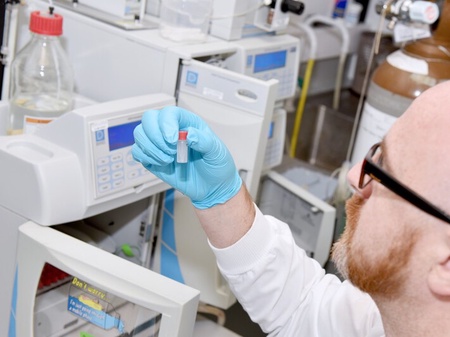A new approach to fostering an enhanced spin-out culture at the University of Aberdeen will now see the institution reduce its equity stake, in favour of increasing innovation and accelerating the commercialisation of intellectual property.
The move makes Aberdeen one of the first universities in Scotland and the UK to introduce key recommendations that emerged from a recent independent review of university spin-outs that was commissioned by HM Treasury.
Under the new policy, the University’s equity share in new businesses could be as low as 5%, compared to the previous 21% minimum rate. Future equity arrangements will also take a sector-specific approach that considers the level of University investment in the underpinning research and nature or extent of the intellectual property.
“An independent review commissioned by the UK Treasury looked at the most successful university spin-out ecosystems across the world and within the UK, to identify best practice and opportunities to support spin-outs to attract greater investment and grow faster,” said Professor Peter Edwards, the University’s Vice-Principal for Regional Engagement.
“The independent review reported criticism from spin-out founders that universities have been taking too great a share, with some taking 40% or even 50% equity, well above levels that investors would see as encouraging the level of investment needed to support the company and founders would consider fair. As a result, they have effectively been stifling these businesses’ ability to grow.
“The University of Aberdeen has an excellent track record and reputation for life sciences spin-outs with firms such as Elasmogen, TauRx and NCIMB in our portfolio. We want to replicate this success across other sectors from green energy to digital technology and, in producing a more nuanced approach, we will be able to provide clarity for founders and improved opportunities for investors which we believe will stimulate future growth and development.”
The new policy is just one element within a much broader set of measures being implemented by the University to support new company creation and economic growth.
These range from changes to academic promotion criteria to recognise commercialisation of academic research, to involvement in initiatives like the recent ICURe Discover North East programme in which the University partnered with Innovate UK, Opportunity North East and The Helix Way. The programme saw 10 teams of university entrepreneurs complete an eight-week journey to equip them with invaluable market understanding and customer discovery skills.
"It's been particularly pleasing to see these teams continue on their commercialisation journey after ICURe Discover, working with the team in Research & Innovation to take the next steps towards spinning out," said Dr Ann Lewendon, Commercialisation Manager.
“Spin-outs are crucial to improving economic growth and they play a pivotal role in helping to solve some of the most pressing challenges facing society,” added Dr Heather Morgan, Dean for Enterprise & Innovation.
“They aren’t created overnight however and another of the areas we’ve been working hard to cultivate as part of this strategic review is our pre-spin-out pipeline. Understanding market interest and commercial potential is critical to transforming research and innovation into successful start-up businesses capable of maximising their impact and delivering tangible results.
“We want to encourage staff and students to feel supported and empowered to take the next step and investors to feel excited about the ideas and opportunities coming out of the University.”
Professor Ross Tuffee, co-author of the Scottish Government’s ‘Entrepreneurial Campus Blueprint’, commented: “The University of Aberdeen is taking a clear position in creating the conditions for more spin outs to be established, to grow and succeed. Taking a transparent and open approach including equity stakes that are practical and workable outside of the institution is a huge step forward.
“This directly aligns with our recommendations. I believe it will encourage more academics to consider translating their research to achieve even greater impact via the spin-out process and will facilitate follow-on investment from external investors, ensuring that the founder's shareholding remains a motivation for them to continue to grow their company.”


